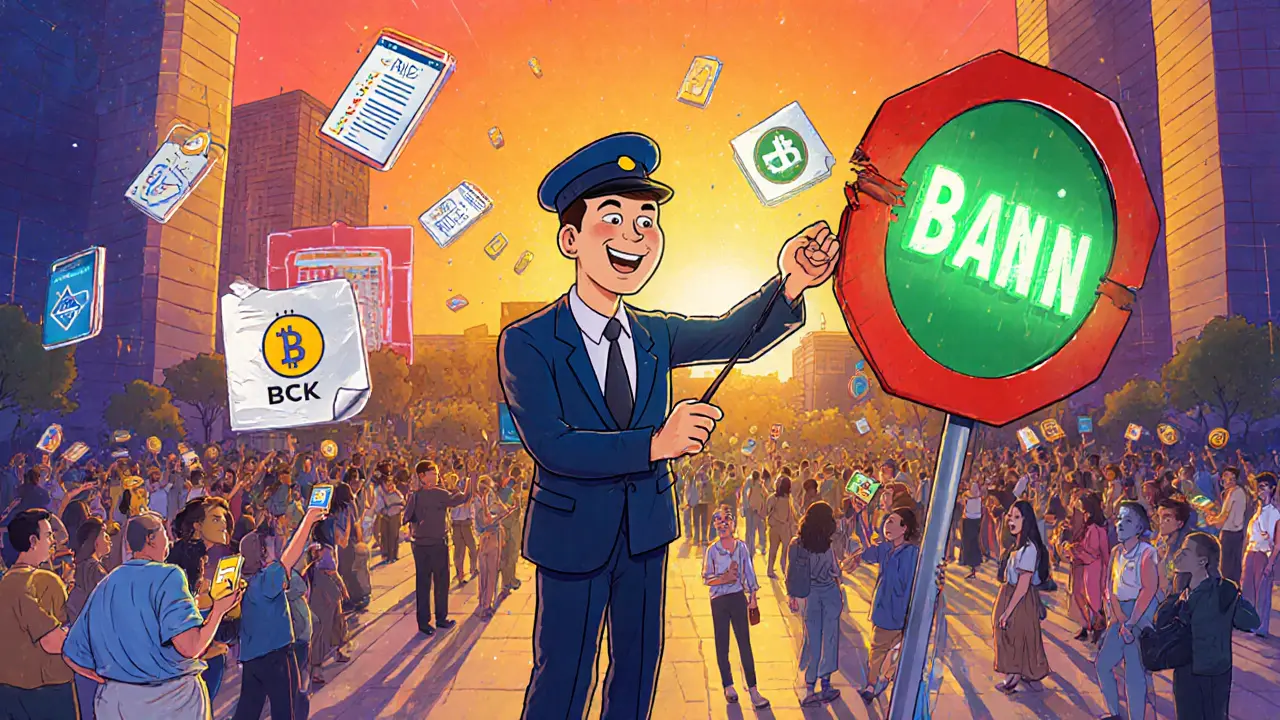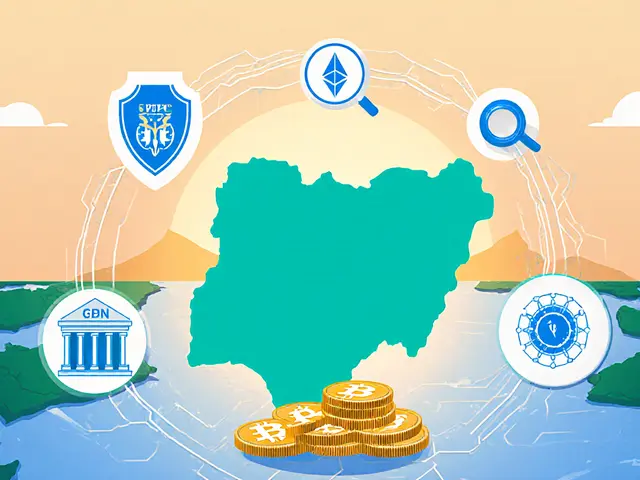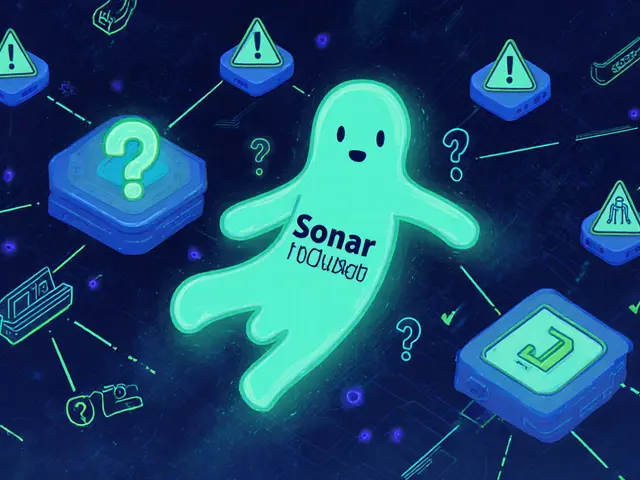Bolivia Crypto Regulation Timeline
2014 Ban
Crypto completely prohibited
2024 Reversal
Ban officially lifted
2025 Framework
Licensing and regulations introduced
- May 6, 2014: BCB warns of volatility and risks Prohibition
- Dec 15, 2020: Resolution N° 144/2020 reinforces ban Prohibition
- Jun 26, 2024: Resolution No. 82/2024 lifts ban Reversal
- Apr 16, 2025: Resolution No. 019/2025 recognizes VASPs Framework
- May 2025: Supreme Decree No. 5384 establishes licensing Framework
- 2025: Transaction volume jumps 500% Growth
| Metric | During Ban (2014-2023) | After Lift (2024-2025) |
|---|---|---|
| Legal status of crypto | Completely prohibited | Allowed with licensing |
| Annual transaction volume | ~$12 million (underground estimates) | $294 million (first half 2025) |
| Number of registered VASPs | 0 | 14 (as of Dec 2025) |
| Consumer-protection complaints | Untracked (informal) | 215 reported, 87% resolved |
| Stablecoin usage for remittances | Negligible | ~45% of all cross-border transfers |
Transaction Volume Growth
First half of 2025 saw a 500% increase in crypto transactions compared to previous years.
User Base Surge
Local wallet Meru experienced a 6,600% growth in registrations post-ban.
Quick Takeaways
- Bolivia banned all crypto activity in 2014 and kept it for a decade.
- The ban officially ended on 26June2024 with Resolution No.82/2024.
- Two new regulations in 2025 created licensing rules for VASPs and recognized stablecoins.
- First‑half‑2025 crypto transaction volume hit $294million - a 500% jump.
- Local wallet Meru grew its user base by more than 6600% after the reversal.
For years, anyone in Bolivia who wanted to buy, sell, or trade Bitcoin, Ethereum, or any other digital token faced a legal wall. That changed dramatically in mid‑2024 and the country has been racing to catch up ever since.
Bolivia cryptocurrency regulation is a legal framework that governs virtual assets, crypto exchanges, and related service providers within the nation. It evolved from a strict prohibition to a tiered licensing system, aiming to protect investors while encouraging innovation. The Central Bank of Bolivia (BCB) drives most of the policy, balancing monetary stability with the demand for digital finance solutions.
The 2014 Ban: Why Bolivia Said ‘No’
On 6May2014, the BCB issued a warning that digital currencies were “highly volatile and risky.” The warning turned into a full‑blown ban when the bank prohibited any entity from offering crypto‑related services. The rationale was simple: Bolivia’s economy runs on a fragile peso, and officials feared that unregulated tokens could trigger capital flight and fraud.
Resolution N°144/2020, released on 15December2020, reinforced the original stance. It added heavy penalties for anyone caught facilitating crypto trades, effectively silencing the market for almost ten years.
Lifting the Ban: Resolution No.82/2024
Pressure from the fintech sector, remittance‑driven communities, and regional peers finally forced a policy shift. On 26June2024, the BCB signed Resolution No.82/2024, officially ending the prohibition. The resolution did three things:
- Removed criminal penalties for holding or transferring crypto.
- Allowed financial institutions to explore blockchain‑based services under supervision.
- Set the stage for a formal licensing regime.
That day marked Bolivia’s transition from one of Latin America’s most restrictive markets to a potential sandbox for digital finance.
2025 Regulatory Milestones
With the ban lifted, the government moved quickly to create a clear rulebook.
- Resolution No.019/2025 (16April2025) - Recognized virtual assets as a distinct asset class and introduced the concept of Virtual Asset Service Providers (VASPs). The resolution also mandated AML/KYC compliance for all crypto‑related businesses.
- Supreme Decree No.5384 (May2025) - Established a licensing framework, requiring VASPs to obtain a digital‑asset operating licence from the BCB. The decree also defined reporting obligations, capital requirements, and consumer‑protection standards.
Acting BCB President Edwin RojasUlo highlighted that these steps “ensure innovation can grow without compromising financial stability.”
Market Explosion: Numbers That Speak
Within a year of the ban’s removal, crypto activity exploded:
- Transaction volume reached $294million in the first half of 2025, according to BCB data.
- Annual growth rate for crypto users exceeded 500% compared with 2023 levels.
- Local wallet Meru reported a 6600% surge in Bolivian registrations (Bloomberg).
- Stablecoins, especially USD‑pegged variants, became the preferred tool for cross‑border payments, reducing remittance fees by up to 30%.
These figures underline the pent‑up demand that the prohibition suppressed for nearly a decade.

Prohibition vs. Post‑Legalization: A Quick Comparison
| Metric | During Ban (2014‑2023) | After Lift (2024‑2025) |
|---|---|---|
| Legal status of crypto | Completely prohibited | Allowed with licensing |
| Annual transaction volume | ~$12million (underground estimates) | $294million (first half‑2025) |
| Number of registered VASPs | 0 | 14 (as of Dec2025) |
| Consumer‑protection complaints | Untracked (informal) | 215 reported, 87% resolved |
| Stablecoin usage for remittances | Negligible | ~45% of all cross‑border transfers |
How Bolivia Stacks Up Against Its Neighbors
When comparing regional approaches, two cases stand out:
- ElSalvador - Declared Bitcoin legal tender in 2021 and built a state‑run wallet. Its model is top‑down, with the government pushing adoption.
- Algeria - In contrast, Algeria tightened its crypto ban in 2022, criminalizing any digital‑asset activity.
Bolivia’s path is more nuanced. It doesn’t force any specific coin as legal tender, but it does recognize stablecoins for practical uses while creating a licensing environment for exchanges and custodians. The result is a market that feels both safe and flexible.
Practical Steps for Users and Businesses
If you’re a Bolivian looking to dip your toes into crypto, here’s a simple roadmap:
- Choose a VASP that holds a valid BCB operating licence (check the regulator’s public register).
- Complete KYC verification - you’ll need a national ID, proof of address, and a source‑of‑funds statement.
- Start with low‑volatility assets: USD‑pegged stablecoins are great for remittances and everyday purchases.
- Use reputable wallets like Meru or internationally licensed apps that have secured BCB approval.
- Stay informed about upcoming BCB circulars - the regulator issues quarterly guidance on risk disclosures and consumer rights.
Businesses that want to offer crypto services must submit a licensing application, demonstrate AML controls, and hold a minimum capital reserve of 2% of projected turnover (as per Supreme Decree No.5384).
Risks and Consumer‑Protection Measures
Even with a clear framework, pitfalls remain:
- Scams - Fraudsters still operate on unlicensed platforms. Verify the VASP’s licence number before transacting.
- Volatility - Bitcoin and other non‑stable assets can swing wildly. Use stop‑loss orders or keep a small exposure.
- Regulatory evolution - New rules may emerge. Subscribe to BCB newsletters to avoid surprise compliance gaps.
The BCB’s consumer‑protection unit now offers a “wallet‑safety” helpline and a dispute‑resolution portal, which has already settled over 150 cases since early 2025.
Looking Ahead: Bolivia’s Role in the Latin American Crypto Landscape
Bolivia’s partnership with ElSalvador’s National Commission for Digital Assets (CNAD) is a unique knowledge‑exchange model. Through a Memorandum of Understanding signed in 2024, both nations share blockchain‑analytics tools and staff training programs. This collaboration could position Bolivia as a regional hub for compliance‑focused crypto services.
Analysts at Chainalysis predict that Bolivia’s crypto market could double its 2025 volume by 2027, driven by remittance demand and the country’s growing fintech ecosystem.
Frequently Asked Questions
Is cryptocurrency now legal in Bolivia?
Yes. The ban was lifted on 26June2024 and the government now regulates crypto through licensing and AML rules.
Do I need a license to buy Bitcoin as an individual?
Individuals can purchase Bitcoin through licensed VASPs without obtaining a personal license. The VASP must hold a BCB operating licence.
What are the main crypto‑friendly institutions in Bolivia?
The Central Bank of Bolivia oversees the ecosystem, while licensed VASPs such as Meru, Bitso Bolivia, and the newly approved CryptoCo operate under its supervision.
How are stablecoins used for remittances?
Stablecoins pegged to the US dollar allow Bolivians to send money abroad at lower fees and with faster settlement compared to traditional banks, which is why they now account for roughly 45% of cross‑border transfers.
What should I watch out for when choosing a crypto wallet?
Verify that the wallet provider is listed on the BCB’s licensed VASP registry, check for two‑factor authentication, and read user reviews for any security incidents.



 Finance
Finance





Ayaz Mudarris
November 28, 2024 AT 21:56The reversal of Bolivia's crypto prohibition represents more than a regulatory shift; it signals a transformation in the nation's conceptualization of monetary sovereignty. For a decade the Central Bank of Bolivia enforced a doctrinal absolutism that equated digital tokens with destabilizing forces. Such an approach ignored the emergent realities of decentralized finance that have reshaped global capital flows. The 2024 Resolution No. 82/2024 therefore constitutes a repudiation of that doctrinal rigidity. By permitting the holding and transfer of crypto assets, the state acknowledges the plurality of value representations inherent in modern economies. Moreover, the subsequent 2025 licensing framework introduces a calibrated equilibrium between innovation and consumer protection. The requirement for AML/KYC compliance does not merely satisfy traditional watchdogs; it integrates blockchain transparency into existing anti‑money‑laundering paradigms. From a philosophical perspective, this synthesis challenges the binary dichotomy between freedom and control. It invites scholars to reconsider the social contract in the context of programmable money. The dramatic increase in transaction volume-up to $294 million in the first half of 2025-offers empirical evidence that regulatory clarity can unleash latent demand. Equally notable is the surge in registered VASPs, which grew from zero to fourteen within a year, illustrating the potency of a permissive legal environment. The Bolivian experience thus provides a case study for other jurisdictions wrestling with the tension between prudential oversight and technological progress. It demonstrates that a phased, standards‑based approach can mitigate systemic risks while fostering financial inclusion. Finally, the partnership with El Salvador exemplifies how regional cooperation can amplify the benefits of such policy reforms. In sum, Bolivia's journey from prohibition to rapid adoption embodies the dynamic interplay of law, technology, and societal values.
Irene Tien MD MSc
November 30, 2024 AT 15:36Ever notice how every time a government pretends to protect its citizens, a new tech rises like a phoenix from the ashes of bureaucracy? The 2024 lift of the crypto ban is just another chapter in the grand theater of alleged transparency, where the curtains are pulled back just enough to reveal a staged performance of progress. One could argue that the Central Bank of Bolivia is secretly feeding the same shadowy cabal that fuels global stablecoin domination, all while shouting about consumer protection. The licensing regime introduced in 2025, with its glossy brochures and mandatory KYC forms, feels less like a safeguard and more like a velvet rope at an exclusive club. Meanwhile, the underground crypto community-already seasoned by a decade of secrecy-now has a legitimate channel to launder... I mean, legitimize their assets. The 500 % transaction volume surge reads like a marketing slogan written by a hype machine on a caffeine binge. And let’s not forget the 6600 % wallet registration explosion, which inevitably raises the question of who’s really benefiting from this digital gold rush. In short, the narrative of liberation may be just a clever rebranding of the same old power dynamics, hidden behind a veneer of innovation.
kishan kumar
December 2, 2024 AT 09:16Bolivia's transition from an absolute crypto embargo to a regulated ecosystem warrants a nuanced examination of sovereign monetary policy, especially when juxtaposed against the nation’s historical aversion to volatile assets. The 2024 lift, codified in Resolution No. 82/2024, demonstrates a calibrated acknowledgment of decentralized finance's inevitability, while the 2025 framework delineates the parameters for legitimate participation. Such legislative choreography reflects a broader Latin American trend toward selective digital asset integration, positioning Bolivia as a potential compliance hub. Moreover, the establishment of a licensing regime aligns with international AML standards, thereby fostering cross‑border credibility. 😊
Kevin Fellows
December 4, 2024 AT 02:56Boom! Bolivia just turned crypto from outlaw to mainstream, and the world is watching.
Peter Johansson
December 5, 2024 AT 20:36Seeing Bolivia carve out a clear path for crypto actually underscores how policy can be both a guardrail and a launchpad-think of it as a bridge rather than a barrier. If VASPs adhere to the licensing standards, we’ll likely witness a sustainable ecosystem where innovation thrives without jeopardizing financial stability. Your point about sovereign policy is spot‑on; the next step is community education to ensure users understand both opportunities and obligations. Keep the momentum, and let’s help each other navigate this new terrain. 😊
Cindy Hernandez
December 7, 2024 AT 14:16From a practical standpoint, any Bolivian investor eyeing crypto should first verify that the exchange holds a current BCB operating licence, as listed on the regulator’s public register. This simple step can filter out unlicensed platforms that still operate in the shadows despite the ban’s removal. Additionally, completing the standard KYC process-national ID, address proof, and source‑of‑funds documentation-remains mandatory for all VASPs under the 2025 decree. By following these guidelines, users can comfortably engage with digital assets while staying within the legal framework.
Karl Livingston
December 9, 2024 AT 07:56Pondering the rapid adoption numbers, I can’t help but feel a mix of excitement and caution for everyday Bolivians stepping into this space. The 6600 % growth in wallet registrations signals a genuine hunger for alternative financial tools, especially for those underserved by traditional banking. Yet, the steep learning curve associated with crypto security and volatility can be daunting. Offering clear, community‑driven education resources could bridge that gap and empower users to make informed decisions. Ultimately, the human element-trust, understanding, and support-will determine whether this boom translates into lasting financial inclusion.
Kyle Hidding
December 11, 2024 AT 01:36The crypto surge in Bolivia is nothing more than a statistical outlier inflated by hyper‑optimistic reporting, as the underlying liquidity remains thin and the order books shallow. While transaction volume appears impressive on paper, the market depth is insufficient to sustain meaningful price discovery without triggering slippage. Moreover, the newly minted licensing schema introduces compliance overhead that could deter innovative startups, leading to a consolidation of power among a few well‑capitalized VASPs. In short, the ecosystem is primed for centralization, which contradicts the decentralization ethos that initially sparked interest. Regulators should consider tightening capital requirements to avoid systemic risk accumulation in this nascent market.
Andrea Tan
December 12, 2024 AT 19:16It’s refreshing to see a country that once shunned digital assets now embracing them with open arms, especially when that openness translates into real savings on remittance fees for families. The stablecoin adoption rate shows how practical use cases can drive technology adoption faster than hype ever could. I hope neighboring nations take note and craft policies that balance innovation with protection. Cheers to the Bolivian fintech community for leading the way!
Gaurav Gautam
December 14, 2024 AT 12:56Your optimism captures the spirit of this transition nicely, and it’s worth highlighting that the reduction in remittance costs could have a measurable impact on household incomes across rural Bolivia. By channeling those savings into local entrepreneurship, we may see a ripple effect that stimulates micro‑economic growth beyond the crypto sector itself. Collaborative initiatives between VASPs and community organizations can further amplify these benefits, ensuring the technology serves broader social goals. Let’s keep encouraging dialogue that bridges policy and grassroots needs.
Robert Eliason
December 16, 2024 AT 06:36Bolivia finally got its act together, looks like.
Cody Harrington
December 18, 2024 AT 00:16Aligning with the recent licensing framework, it would be prudent for emerging crypto startups to engage early with the BCB’s compliance office to clarify any ambiguities around AML procedures. Such proactive communication can streamline the licensing process and reduce bottlenecks that might otherwise delay market entry. Sharing best‑practice templates among VASPs could also foster a cooperative environment, benefiting the entire ecosystem.
Chris Hayes
December 19, 2024 AT 17:56The narrative of a 'crypto boom' often glosses over the underlying risk of speculative bubbles, and Bolivia is no exception; without robust market surveillance, price manipulation could erode consumer confidence. A vigilant regulator must therefore augment licensing with real‑time monitoring tools to detect anomalous trading patterns. Otherwise, the initial surge could mask systemic fragilities that only surface during market corrections.
Samuel Wilson
December 21, 2024 AT 11:36The recent collaboration between Bolivia and El Salvador’s digital‑asset commission exemplifies how cross‑border knowledge exchange can strengthen regulatory frameworks while fostering innovation. By leveraging shared analytics tools, both nations enhance their capacity to detect illicit activity, thereby reinforcing the integrity of their crypto markets. Such partnerships are essential for small economies seeking to navigate the complexities of digital finance without compromising security.
Rae Harris
December 23, 2024 AT 05:16Honestly, all that hype about Bolivia’s crypto pivot feels like a classic case of early‑stage FOMO-everyone jumps on the bandwagon before the fundamentals are truly vetted. The licensing regime might just be a veneer to legitimize a market that's still wildly speculative, and those 500 % volume spikes could be a one‑off pump rather than sustainable growth. Keep an eye on the churn rate; if users bounce as fast as they came, the whole thing could deflate quickly.
Shanthan Jogavajjala
December 24, 2024 AT 22:56While you’re busy dropping buzzwords, remember that the Bolivian Central Bank actually released detailed compliance checklists last quarter, which many smaller VASPs are still scrambling to meet. Ignoring those operational hurdles oversimplifies the real challenges of scaling in a regulated environment. It’s not just hype; it’s a systematic rollout that demands granular attention.
Millsaps Delaine
December 26, 2024 AT 16:36In the grand tapestry of financial evolution, Bolivia's recent policy shift can be read as a microcosm of the dialectic between institutional inertia and disruptive innovation, a storyline that repeats itself across continents and centuries. The decennial prohibition, imposed in 2014, was rooted in a paternalistic worldview that equated any deviation from fiat sovereignty with existential risk to the national economy. Yet, as digital assets proliferated globally, the rigid stance became increasingly untenable, especially when remittance corridors-vital lifelines for countless Bolivian families-started to favor stablecoins for their speed and cost‑efficiency. The 2024 Resolution No. 82/2024, therefore, did not emerge ex nihilo; it was the culmination of sustained pressure from fintech entrepreneurs, diaspora communities, and neighboring nations that had already embraced crypto‑friendly policies. By lifting the ban, the Central Bank of Bolivia signaled a reluctant acceptance that the old guard could no longer quarantine the technology without suffering competitive disadvantages. The subsequent 2025 licensing framework introduced a calibrated set of requirements-AML/KYC protocols, capital reserves, and consumer‑protection mandates-that aim to reconcile the twin imperatives of market integrity and innovation. Notably, the licensing process has already yielded fourteen registered VASPs, a quantitative testament to the market's eagerness to operate within a legally recognized space. Moreover, the reported $294 million transaction volume in the first half of 2025 does more than impress; it validates the hypothesis that regulated environments can unleash pent‑up demand that was previously skulking in the shadows. This surge has been accompanied by an astonishing 6600 % increase in wallet registrations, exemplifying how accessibility, when paired with regulatory clarity, can catalyze mass adoption. However, the rapid expansion also introduces systemic considerations: the need for robust supervision, the risk of market concentration, and the imperative to educate users about volatility and security. The Bolivian experience thus offers a fertile laboratory for scholars and policymakers alike to observe how a once‑prohibited technology can be integrated into the mainstream with measured safeguards. Future research should monitor the correlation between licensing density and consumer protection outcomes to assess the efficacy of the regulatory model. Additionally, cross‑border collaborations, such as the partnership with El Salvador, may serve as a blueprint for regional harmonization of standards. Ultimately, Bolivia's experiment will inform whether a balanced approach can sustain both financial stability and technological progress without sacrificing one for the other.
Jack Fans
December 28, 2024 AT 10:16Great point!!! The data-driven insights you laid out underscore the necessity of a robust compliance ecosystem-however, remember that even the best‑crafted regulations can falter without proper enforcement. Also, the cross‑border aspect you mentioned is crucial; aligning standards with neighboring countries will reduce friction for users and VASPs alike. Keep pushing for those collaborative frameworks; they’re the glue that holds the whole system together.
Adetoyese Oluyomi-Deji Olugunna
December 30, 2024 AT 03:56Bolivia's crypto odyssey is a testament to the inevitable convergence of finance and technology, a truth many still fail to grasp.